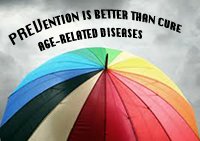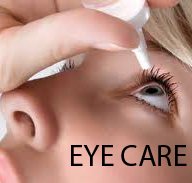|
Prevent DementiaTop Five Tips to Protect Your BrainThere are several things that you can do to prevent dementia even though some of the risk factors, such as age or family history, cannot be entirely erased. If you follow the advice found in the section on preventing age-related-illness, eat well, exercise regularly, get enough sleep and fresh air, you are well on your way to living to a grand old age with all your faculties. However, especially if you have a high number of risk factors, such as family history of dementia, you will probably want to do all you can to cut down your risks as much as possible. Here are five (or six) things you can do to improve your situation. 1. Eat Fish RegularlyEating non-fried fish three times a week can dramatically decrease the way you age. One of the health benefits of this protein is that it can help prevent dementia, including Alzheimer’s. A recent study suggests that eating fish a few times a week may reduce dementia risk by as much as 19 percent! It's not the protein in fish which reduces your risk of dementia but the omega-3 fatty acids which keep our brains healthy. Researchers believe these fats protect cognitive function. And if you use fish to replace some of the red meat in your diet, all the better. The same study suggests that oo much red meat may increase the risk of dementia. Grill or steam fish to get the most nutrients and avoid bad fats from the cooking process. 2. Include Cruciferous Vegetables in DietBroccoli, cauliflower, brussel sprouts, cabbage and other cruciferous vegetables can also help keep your brain young and help prevent dementia. According to an article I received recently from the RealAge website people, women who completed a questionnaire about the food they ate revealed that people who love cruciferous veg as well as the green leafy variety showed more significant memory recall than those that didn’t eat their greens. In fact, their test scores were more in line with those of women a couple of years younger. Researchers believe that nutrients like lutein and folate, found in foods like spinach, may be part of the reason for the increased memory and other brain benefits of eating cruciferous and leafy green vegetables. 3. Spice up your food with MustardAn Ancient Remedy Future Potential Benefit Now Tumeric is what gives mustard its colour but check out the amount of tumeric in your favourite brand of mustard and consider changing if necessary. 4. Walk you way to better brain functionA new study shows that regular cardiovascular exercise can enlarge the hippocampus -- a structure in the brain which is vital for memory. Having a large hippocampus can be a great weapon in your fight to prevent dementia. As we age, our brains tend to shrink, and this effects our memory. An aerobically fit person has a larger hippocampus, accoding to research, and performs better on spatial memory memory tests than a less fit subject. In the study, being more fit did not slow the rate of hippocampal shrinkage once it began, but it meant that people generally had more to work with once shrinking started. And that means less total deterioration overall. Find out what types of exercise provide brain-boosting benefits Related research suggests that exercise may even help restore lost brain volume and cognitive function in people with early-stage Alzheimer's disease, possibly because exercise increases cerebral blood flow and boosts the birth of new brain cells. 5. Reduce Stress and Banish NegativityChronic stress can be a real brain drain, and troubled finances may be one major cause. Take care of worries, especially financial worries as they arise. Work related stress and financial stress compromise your immune system and make you more vulnerable to all sorts of ailments, including dementia.. Anxiety about everyday problems if alllowed to build up may lead to depression. The bad news is that Depression is now thought to increase your risks of developing dementia. Ditch depessing thoughts and your memory will benefit. Seek Help Top of Prevent Dementia |
Translate this Site
Search This Site
Subscribe to E-zine
Relevant Pages
Mental Health Issues
Prevent Dementia - Top Five Tips
Ten Steps to Avoid Hospital Delirium
Recommended Supplements
Supplement you can trust for depression, stress and anxiety
Supplement you can trust to preserve your memory
Supplement you can trust to get a good night's sleep













